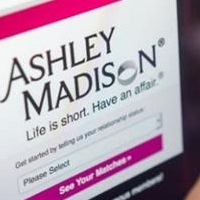Our Expectation of Privacy Forever Changed
The next wave of fallout from the hack of the Ashley Madison site has arrived. The personal information of some 37 million users of the site is now public. There is a growing consensus that this should or will forever alter our expectation of privacy.
The Ashley Madison Hack Is Only the Beginning | Mario Aguilar | 8/19/15 | Gizmodo
Yesterday, hackers dumped 9.8 GB of data that’d been previously stolen from ashleymadison.com, including information and transaction details for the site’s 37 million users. The website, for those of you who don’t know, helps married or otherwise “taken” men cheat with available women who are into that kind of thing.
You submit information online under the illusion that no one is ever going to see it—even if you know better. For the most part you’ll be safe, but as we increasingly entrust more and more of our private selves to inherently fallible digital service providers, devastating leaks like The Fappening and the Ashley Madison breach are going to happen more and more.
Welcome to the first day of the rest of your internet | John Herrman | 8/18/15 | theawl.com
Anyway, I may be overestimating how far things will unfold, but this feels like a momentous event. Barring some sort of heroic cleanup effort on the part of the entire internet—which I guess, between Twitter moderation and aggressive lawyering, isn’t totally impossible—millions of lives may be about to change profoundly. It’s easy to kid about the fact that these people were using a site intended to help them cheat. But if understood in more abstract terms, this hack has the potential to alter anyone’s relationship with the devices and apps and services they use every day. Here were millions of people expecting the highest level of privacy that the commercial web could offer as they conducted business they likely wanted to keep between two people (even if a great number of the emails are junk, or attached to casual gawkers, the leak claims to contain nine million transaction records). This hack could be ruinous—personally, professionally, financially—for them and their families. But for everyone else, it could haunt every email, private message, text and transaction across an internet where privacy has been taken for granted. Ashley Madison, in the strange hacker economy of 2015, may have had an especially big target on its back. But it’s a powerful reminder of the impossibility of perfect privacy.
The mind-bending messiness of the Ashley Madison data dump | Casey Newton | 8/19/15 | The Verge
But if we’ve learned anything from the never-ending series of data breaches, it’s that over a long enough time period, all sites are likely to fall victim to hackers. And this raises yet more questions. In a world where we expect more of our communications to eventually be made public, will we begin to abandon certain apps or services en masse? Is it truly our responsibility to act as if everything we say will eventually become public, or can we hold companies responsible when they fail to protect our data? Can we pressure companies to purge more of our data on a regular basis, limiting our exposure risk in the likelihood of an eventual hack? Or will we once again shrug our shoulders at the seeming hopelessness of it all?
At this early stage, it’s impossible to say. And so we sit and stew about a future that could someday come to include a searchable online database of our emails, or our text messages, or our Tinder chats. We can hope that future never comes about, even though it seems to grow closer with every passing hack. In the meantime, two old adages would seem to apply. So prepare for the worst. And mind your own business.




